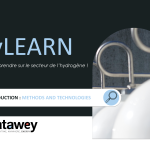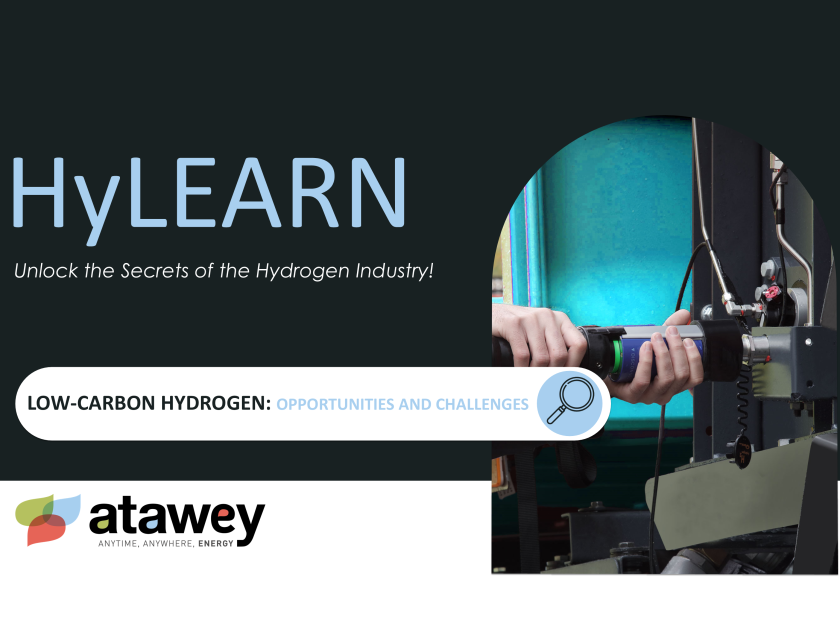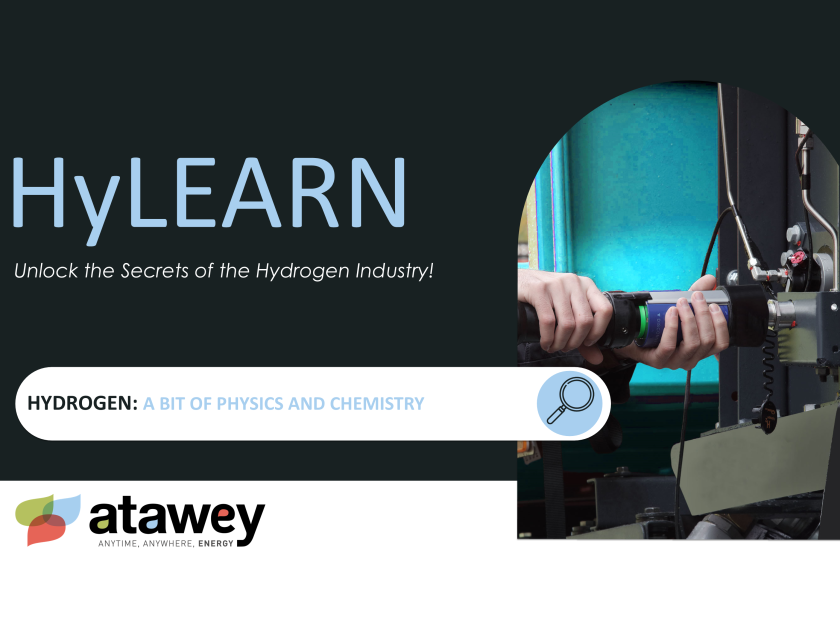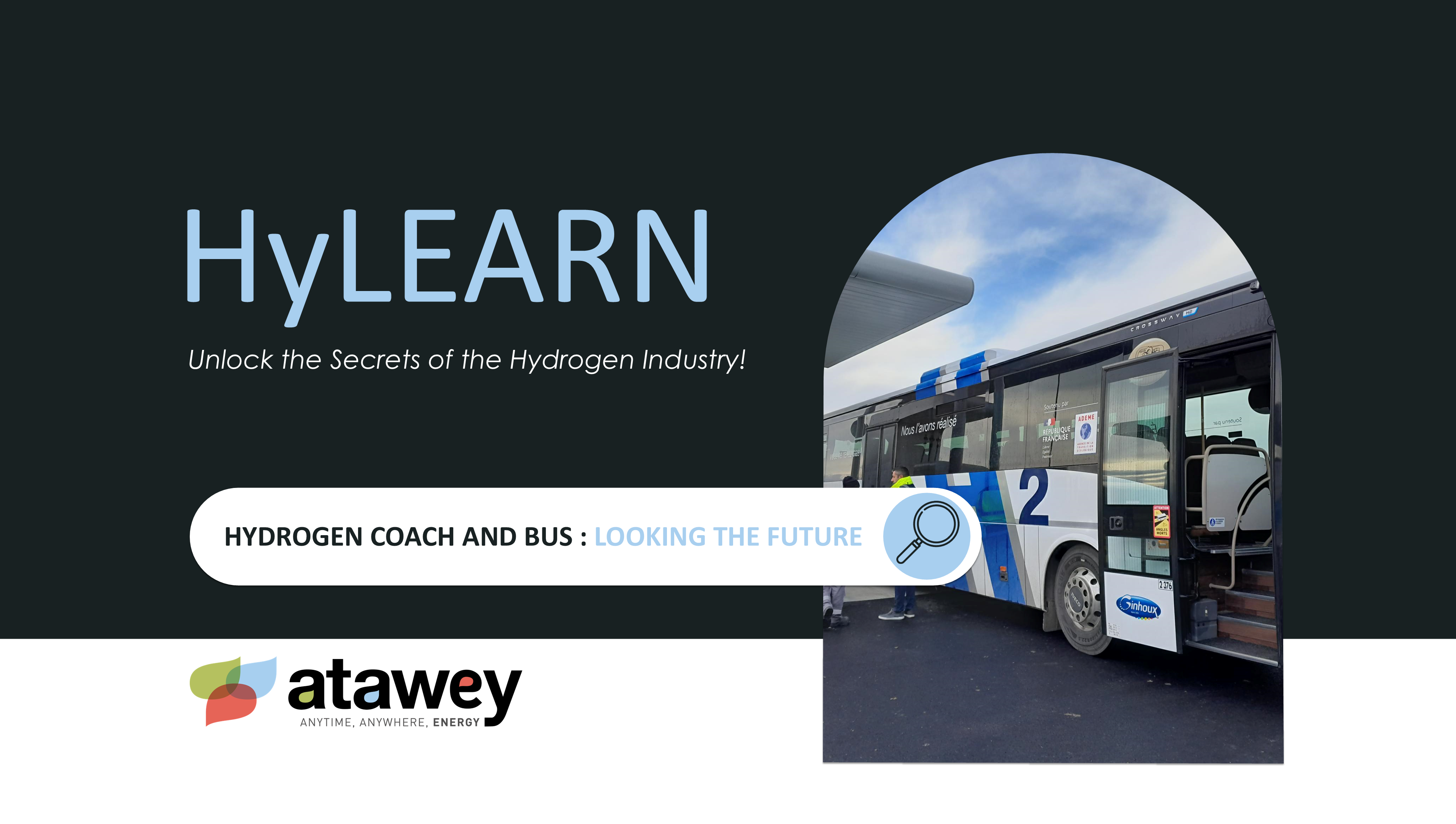
Heading into the future: hydrogen buses and coaches leading the way.
In the face of challenges related to the decarbonization of transportation, energy efficiency and technological transition have become priorities in urban and regional mobility policies. Encouraging the regular use of public transportation and reducing NOx emissions (nitrogen oxides produced by fossil fuel combustion) are reshaping sustainable mobility solutions. Among these, hydrogen buses and coaches stand out as a way to combine efficiency with environmental responsibility.
As of January 2025, France already had 52 hydrogen buses in operation, with 222 more being deployed. With over 540 units announced for the coming years (source: France Hydrogène Mobilité – January 22, 2025), a strong momentum toward this technological transition is underway. Thanks to their zero-emission operation and ability to cover long distances without frequent refueling, these vehicles provide a concrete solution to the challenges of urban transportation.
Do not confuse hydrogen coaches and hydrogen buses!
A bus (or autobus) is a public transport vehicle designed to carry 20 to 100 passengers, sometimes including standing areas or spaces for people with reduced mobility. It operates on short to medium routes with frequent stops at fixed points and is deployed in urban or suburban areas.
The main hydrogen bus manufacturers in Europe are Solaris, Wrightbus, Caetano, and Mercedes-Benz, offering 12m and 18m models. Their key feature is a 350-bar hydrogen tank (compared to 700 bar for coaches), storing between 30 and 40 kg of hydrogen, providing a range of up to 600 km.
In contrast, a coach is designed for intercity or long-distance travel, often connecting different cities or regions. It makes fewer stops, offering more direct journeys. Coaches are built to transport around 50 seated passengers equipped with seat belts, along with their luggage stored in an underfloor compartment. The hydrogen coach market is still far less developed than that of hydrogen buses, with only a few retrofitted vehicles currently in circulation. This is due to higher autonomy requirements and space constraints, as luggage storage needs to be preserved.
In summary: Buses operate short, frequent urban routes, while coaches are suited for long-distance travel and school transportation.
New or Retrofit: Do You Know the Difference?
There are two categories of hydrogen vehicles on the market: new models and retrofitted models.
Each has its own advantages depending on user needs. New models are specifically designed for hydrogen, ensuring optimal performance and maximum lifespan for all components. Retrofitted models, on the other hand, follow a circular economy approach, extending the life cycle of existing combustion-engine vehicles by replacing their components. This significantly reduces their environmental impact.
How do hydrogen buses and coaches work?
Discover how these hydrogen vehicles work with our explanatory diagram below.
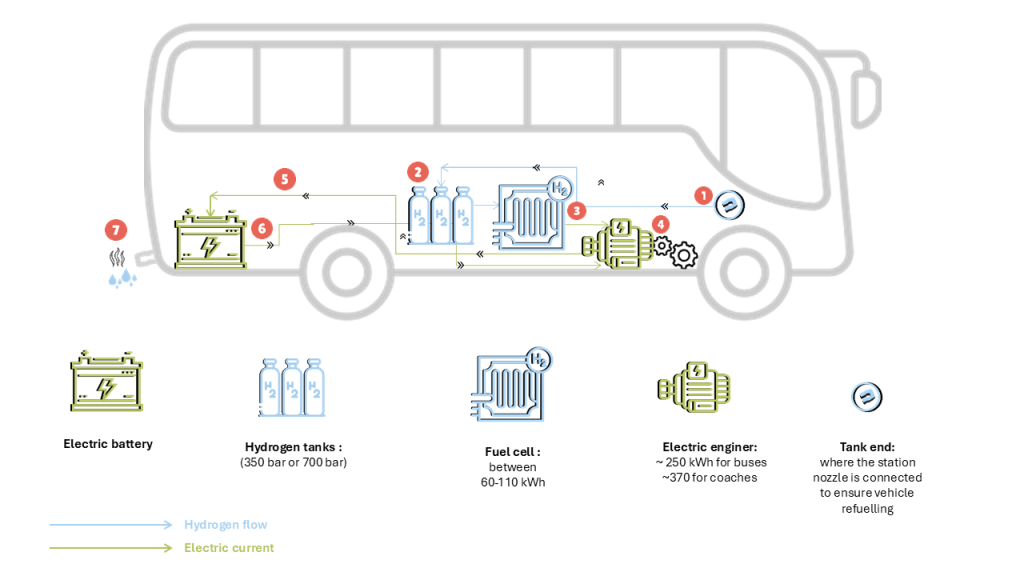
- The hydrogen bus is refueled at a H2 station (refueling time between 10 and 20 minutes) in the same way a conventional bus would refuel at a thermal station.
- Hydrogen is stored in high-pressure tanks (350 or 700 bar) and then supplies the fuel cell when the hydrogen bus is in operation.
- Hydrogen and ambient oxygen (O2) react inside the fuel cell to produce water and electricity.
- This electricity powers the electric engine, which drives the wheels, moving the hydrogen bus forward.
- At the same time, energy generated through regenerative braking (similar to a standard electric vehicle) is stored in the battery.
- The battery thus also supports the electric motor by supplying the electricity recovered during regenerative braking.
- Finally, the only emission from the bus’s exhaust is water vapor, produced by the fuel cell.
Local authorities: why adopt hydrogen buses for sustainable urban mobility?
For local residents
Hydrogen buses contribute to improving quality of life in cities by reducing air and noise pollution. These vehicles produce no CO2, fine particles, odors, or toxicity, leading to cleaner air for residents. Hydrogen fuel cell vehicles incorporate an electric motor, which, in addition to being silent, helps reduce noise pollution.
Finally, hydrogen technology provides a key solution for stabilizing electrical grids. Due to its storage capacity, it allows for decoupling energy production from consumption, preventing overloads on the grid during peak demand periods. This flexibility reduces the risks of voltage spikes and outages, ensuring a continuous power supply for local residents. By integrating hydrogen, electrical infrastructures are less strained, promoting a more reliable grid and quality service for the community.
For local authorities
In France, since 2022, urban areas with more than 250,000 inhabitants are required to ensure that a quarter of their bus fleet is zero-emission. Hydrogen buses, which only emit water vapor, present a relevant solution for meeting this requirement.
Their hydrogen tanks ensure optimized range, allowing them to effectively cover suburban and urban areas, including those with significant elevation changes or marked temperature variations. Unlike battery-electric buses, whose range can be significantly impacted by the use of heating in winter or air conditioning in summer, hydrogen buses maintain their performance regardless of weather conditions.
Additionally, their more compact battery frees up space for passenger transport, while being better suited for long distances.
Finally, their quick refueling time (between 10 and 20 minutes) reduces the need for extensive refueling infrastructure and optimizes the footprint, a key advantage in constrained environments such as bus depots or airport platforms.
For drivers
Hydrogen buses combine comfort, performance, and efficiency, enhancing the driving experience. Silent and free of vibrations, they reduce driver fatigue, making long-distance driving much more comfortable. Their large range, combined with stable performance even in cold weather or on routes with significant elevation changes, makes them ideal for intensive use. Additionally, the quick refueling time ensures smooth and rapid turnover, a crucial advantage for transport networks that require tight schedules.
All aboard: hydrogen buses and coaches are already on the road!
Many cities in France have already chosen hydrogen buses and coaches to modernize their transport networks. These projects showcase their potential to transform urban mobility:
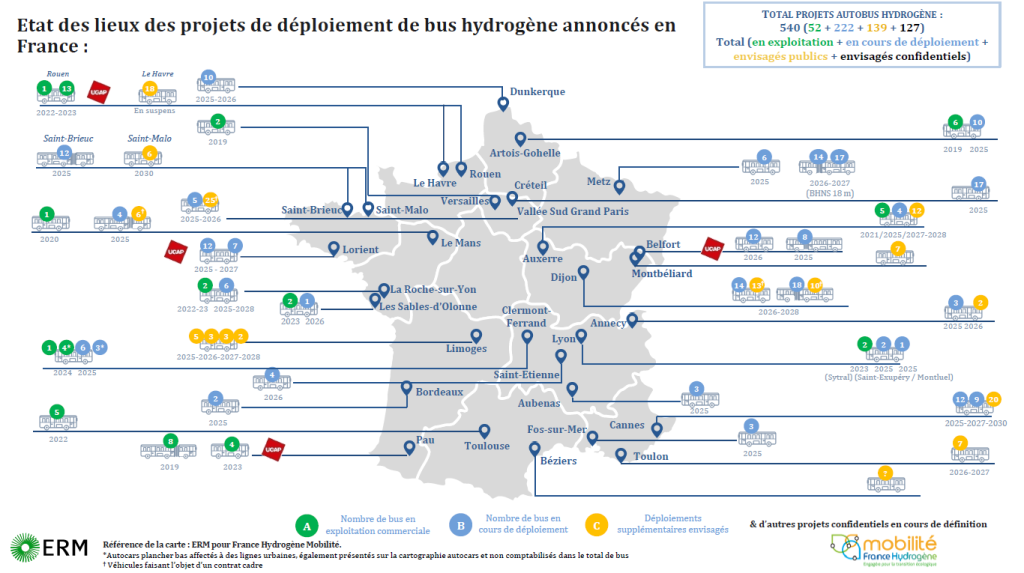
Here are a few examples:
- HYPORT: The renewable hydrogen solution in the Occitanie region
- NOMAD CAR H2, the first retrofitted coach to be certified
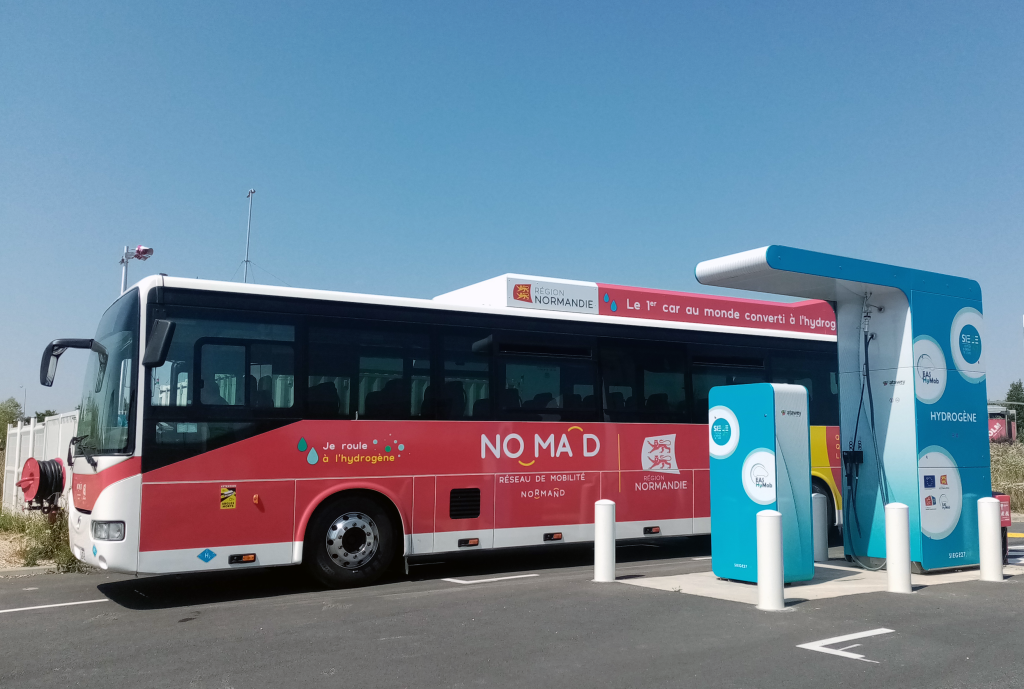
- AMETHyST: Hydrogen coaches and buses in the Alps
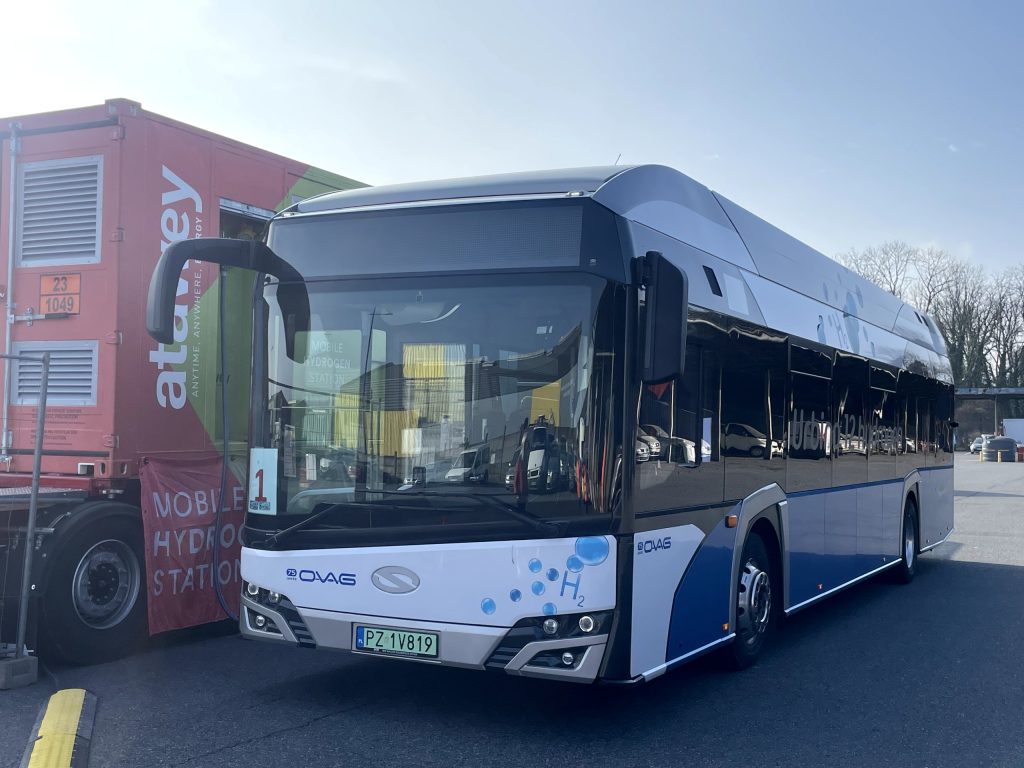
Hydrogen, the key to a sustainable future for our cities
In summary, hydrogen buses represent a major advancement in the field of sustainable mobility. By combining zero particle emissions, extended range, and fast refueling times, they are positioned as the ideal solution for local authorities aiming to reduce their environmental impact.
By investing in this innovative technology, cities and local communities contribute to accelerating the energy and technological transition while providing efficient and sustainable public transport for their residents.



